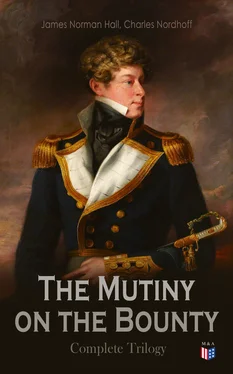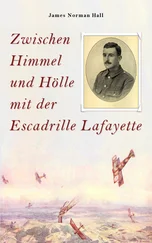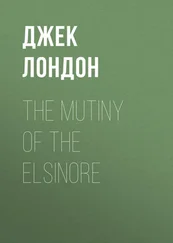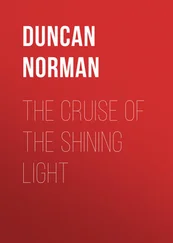“Every sailor must have his sweetheart,” he said, half lightly and half in earnest, “and I’ve found mine. I stake my life there’s not a truer lass in all these islands!”
Hina smiled gravely and touched my arm as a hint to leave Christian to his courting. She had liked him at first sight, and knew his rank on board. And thanks to the uncanny fashion in which news of every sort spreads among the people of Tahiti, she knew that he had had no traffic with the women who infested the ship.
Table of Contents
From the day of his meeting with Maimiti, Christian missed no opportunity of visiting us, arriving by day or by night as his duties on board the Bounty permitted. The Indians, who felt no need of unbroken sleep, were frequently up and about during the night, and often made a meal at midnight when the fishers returned from the reef. Old Hitihiti oftentimes awakened me merely from a desire to converse, or when he suddenly recollected some word which had escaped his memory during the day. I grew accustomed to this casual and broken sleep, and learned, like my host, to make up during the afternoon for what was lost at night.
Christian was soon accepted by the household as the avowed lover of Maimiti. He seldom came without some little gifts for her and the others, and his visits were anticipated with eager pleasure. He was a man of moods; at sea I had seen him stern, reticent, and almost intimidating for a fortnight at a time. Then all at once he would unbend, shake off his preoccupation, and become the heartiest and gayest of companions. No man knew better how to make himself agreeable to others when he chose; his sincerity, his education, which went beyond that of most sea officers of the time, and the charm of his manner combined to win the respect of men and women alike. And the ardour of his nature, his handsome person and changing moods, made him what women call a romantic man.
One night, when I had been about six weeks at the house of Hitihiti, I was awakened gently in the Indian fashion by a hand on my shoulder. The flare of a candlenut made a dim light in the house, and I saw Christian standing over me, with his sweetheart at his side.
“Come down to the beach, Byam,” he said; “they have built a fire there. I have something to tell you.”
Rubbing the sleep from my eyes, I followed them out of the house, to where a fire of coconut husks burned bright and ruddy. The night was moonless and the sea so calm that the breakers scarcely whispered on the sand. Mats were spread around the fire, and Hitihiti’s people lay about, conversing in low voices while fish roasted on the coals.
Christian sat down, his back to the bole of a coconut palm and an arm about Maimiti’s waist, while I reclined near by. I knew at the first glance that his gaiety of the weeks past had been succeeded by one of his sombre moods.
“I must tell you,” he said slowly, at the end of a long silence, “Old Bacchus died last night.”
“Good God!” I exclaimed.... “What....”
“He died, not of drink, as might have been supposed, but of eating a poisonous fish. We purchased about fifty pounds of fish from a canoe that came in from Tetiaroa, and your mess had a string of them fried for dinner yesterday. They were of a bright red colour and different from the others. Hayward, Nelson, and Morrison were close to death for six hours, but they are better now. The surgeon died at eight bells, four hours ago.”
“Good God!” I repeated stupidly and mechanically.
“He will be buried in the morning, and Mr. Bligh bids you to be on hand.”
At first the news dazed me and I did not realize the full extent of the loss; little by little the fact that Old Bacchus was no longer of the Bounty’s company came home to me.
“A drunkard,” said Christian musingly, as if to himself, “but beloved by all on board. We shall be the worse off for his death.”
Maimiti turned to me, and in the ruddy firelight I saw glistening in her eyes the easy tears of her race. “Ua mate te ruau avae hoe,” she said sorrowfully. (The old man with one leg is dead.)
“I have been many years at sea,” Christian went on, “and I can tell you that the welfare of men on shipboard depends on things which seem small. A joke at the right moment, a kind word, or a glass of grog is sometimes more efficacious than the cat-of-nine-tails. With the surgeon gone, life on the Bounty will not be what it was.”
Christian spoke no more that night, but sat gazing into the fire, a sombre expression in his eyes. Maimiti, a silent girl, laid her head on his shoulder and fell asleep, while he stroked her hair tenderly and absently. I lay awake for a long time, thinking of Old Bacchus and of the trick of fate which had so abruptly closed his career, on a heathen island, twelve thousand miles from England. Perhaps his jovial shade would be well content to haunt the moonlit groves of Tahiti, where the sea he loved was only a pistol shot away—its salt smell in the air and the thunder of its breakers sounding day and night. And he had died on shipboard, as he would have desired, safe from the dreaded years of retirement on shore. Christian was right, I thought; without Old Bacchus, life on the Bounty could not be the same.
We buried him on Point Venus, close to where Captain Cook had set up his observatory twenty years before. There was some delay in getting the consent of Teina, the great chief whom the English had believed to be king of Tahiti, and who was the first of the Pomares. At last all was arranged, and the Indians themselves dug the grave, laying it out very exactly east and west. It was not until four o’clock in the afternoon that Old Bacchus was laid to rest, Bligh reading the burial service and a great crowd of Indians—silent, attentive, and respectful—surrounding us. When the captain and the Bounty’s people had gone on board to see to the auctioning of the dead man’s effects, Nelson and Peckover remained on shore, the former still pale and shaken from fish poisoning. The Indians had dispersed, and only the three of us lingered by the new grave, covered with slabs of coral in the Indian style.
Nelson cleared his throat and drew from a bag he carried three glasses and a bottle of Spanish wine. “We were his best friends on board,” he said to Peckover, “you and Byam and I. I think it would please him if we added one small ceremony to the burial service Captain Bligh read so well.” The botanist cleared his throat once more, handed us the glasses, and uncorked his bottle of wine. Then, baring our heads, we drank in silence to Old Bacchus, and when the bottle was empty we broke our glasses on the grave.
The relaxation of discipline which had followed the hardships of the Bounty’s long voyage now came to an end as Bligh’s harsh and ungovernable temper once more began to assert itself. I saw something of what was going on during my visits to the ship, and learned more from Hitihiti and Christian, who gave me to understand that there was much murmuring on board.
Each man on the ship, as I have said, had his Indian friend, who felt it his duty to send out to his taio frequent gifts of food. The seamen quite naturally regarded this as their own property, to be disposed of as they wished, but Bligh soon put an end to such ideas by announcing that all that came on board belonged to the ship, to be disposed of as the captain might direct. It was hard for a seaman whose taio had sent out a fine fat hog of two or three hundredweight to see it seized for ship’s stores, and to be forced to dine on a small ration of poor pork issued by Mr. Samuel. Even the master’s hogs were seized, though Bligh had at the moment forty of his own.
I witnessed unpleasant scenes of this kind one morning when I had gone on board to wait upon Mr. Bligh. The captain had gone ashore and was not expected for some time, so I loitered by the gangway, watching the canoes put out from shore. Young Hallet, the petulant and sickly-looking midshipman whom I liked least of those in the berth, was on duty to see that no provisions were smuggled on board, and he stepped to the gangway as a small canoe, paddled by two men, came alongside. Tom Ellison, the youngest of the seamen and the most popular with all hands, was in the bow of the canoe. He dropped his paddle, clambered up the ship’s side, touched his forelock to Hallet, and leaned down to take the gifts his taio handed up to him. They were a handful of the Indian apples called VI, a fan, with a handle made of a whale’s tooth, curiously carved, and a bundle of the native cloth. The Indian grinned up at Ellison, waved his hand, and paddled away. Hallet stooped to take up the apples laid on deck, and began to eat one, saying, “I must have these, Ellison.”
Читать дальше











